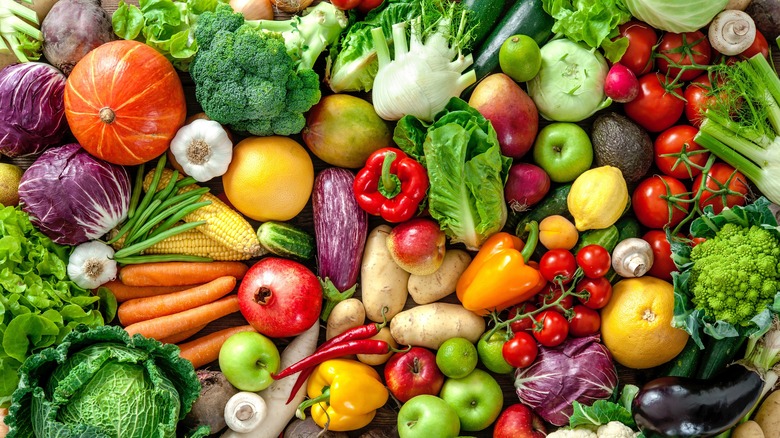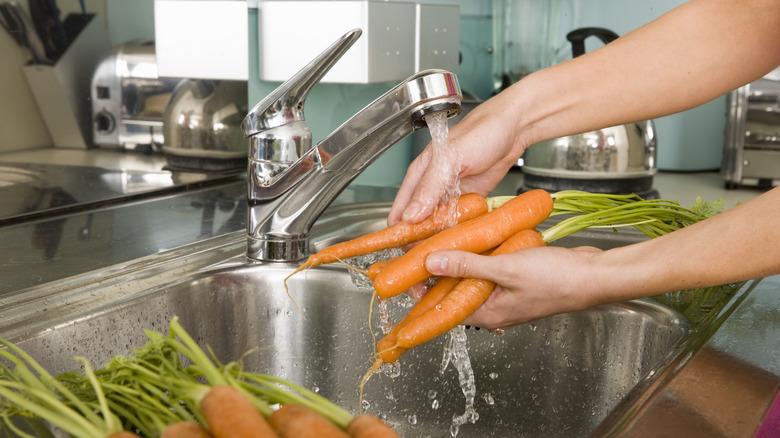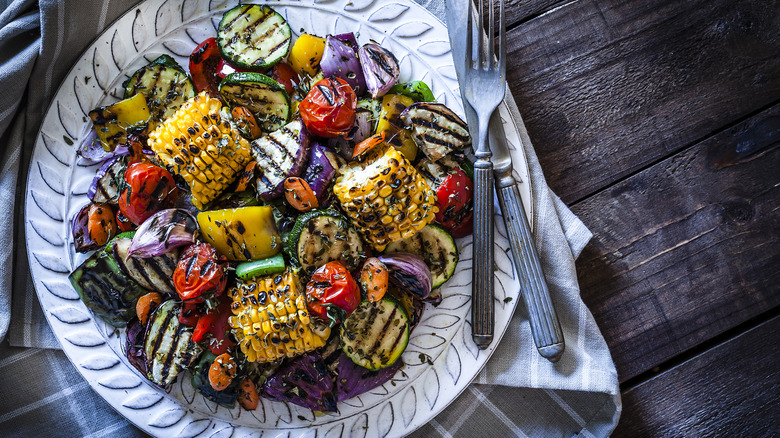Sorry, It's A Mistake To Peel Veggies Without Washing Them
Most people know that it's important to wash fruit, especially if you'll be eating the peel. When it comes to vegetables, however, it can be easy to talk yourself out of cleaning the exterior, especially if you aren't eating the peel. In this case, it's no big deal to skip the washing step, right? Wrong.
Even if you're peeling your vegetable before you eat it, you need to wash the outside before preparing and consuming it. Take carrots, for example. Even though a carrot's skin is thin and edible, many people choose to peel carrots before eating. If you go right to the peeling step without washing, you can easily transfer any pathogens or bacteria that are on the skin of the carrot to the inner flesh that you'll be consuming. As the peeler or knife slices through the skin, it can bring those germs with it to the inside.
Why you need to wash your vegetables
Ingesting a little bit of germs and bacteria is okay, right? Wrong. Fruits and vegetables are one of the leading sources of foodborne illness in the United States. The CDC recommends that you wash your hands, food prep surfaces, and kitchen utensils before working with vegetables. Then, wash your vegetables under running water, even if you don't plan to eat the peel or skin. When it comes to particularly firm vegetables, like cucumbers, scrub them with a clean vegetable brush.
Raw vegetables can be contaminated with a variety of germs, including salmonella, E. coli, and listeria. They can lead to food poisoning, which can cause diarrhea, fever, stomach cramps, vomiting, flu-like symptoms, headache, and confusion. The symptoms can vary based on the type of pathogen you ingest. Symptoms can also vary from person to person; people over 65, people younger than five, people with weakened immune systems, and people who are pregnant are all more likely to develop food poisoning. Taking a few minutes to wash your produce is invariably better than spending a few days in the bathroom or in bed.
Cooked vegetables should be washed, too
If you're going to cook your vegetables, you might be able to get away with not washing them, but it's still best just to wash them anyway. The CDC says that the safest vegetables to eat are cooked vegetables. You'll probably be heating them enough to kill any harmful bacteria.
However, it's still in your best interest to wash them even if you're going to cook them because washing can help prevent cross-contamination. For example, a major cutting board mistake would be to set an unwashed head of broccoli on the board, and then use that same board to slice up some washed strawberries. This could transfer bacteria from the broccoli to the strawberries. You could also contaminate other food by placing unwashed vegetables next to other food items in your refrigerator's vegetable drawer. The best solution, no matter how you plan to consume your vegetables, is to wash them first.


